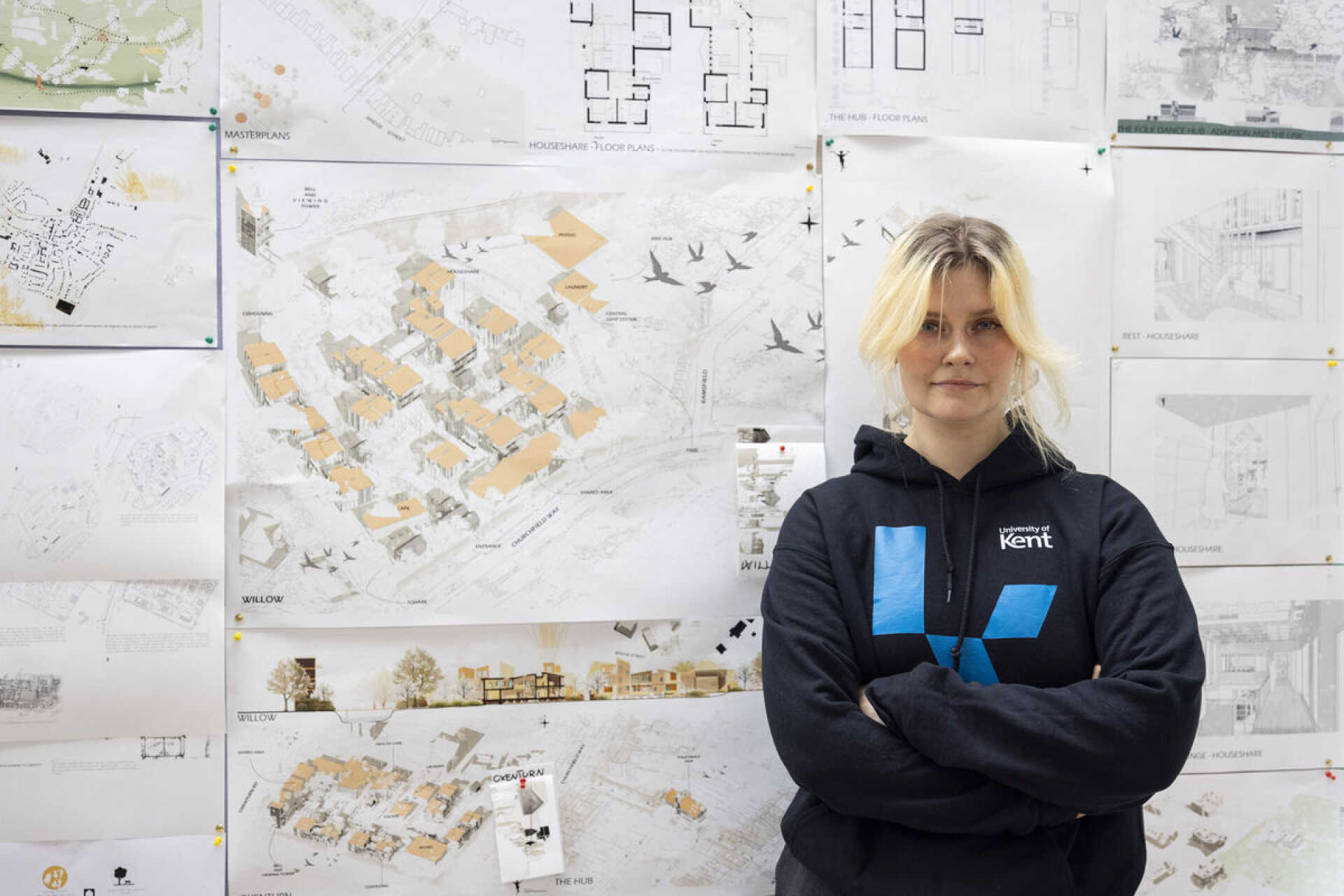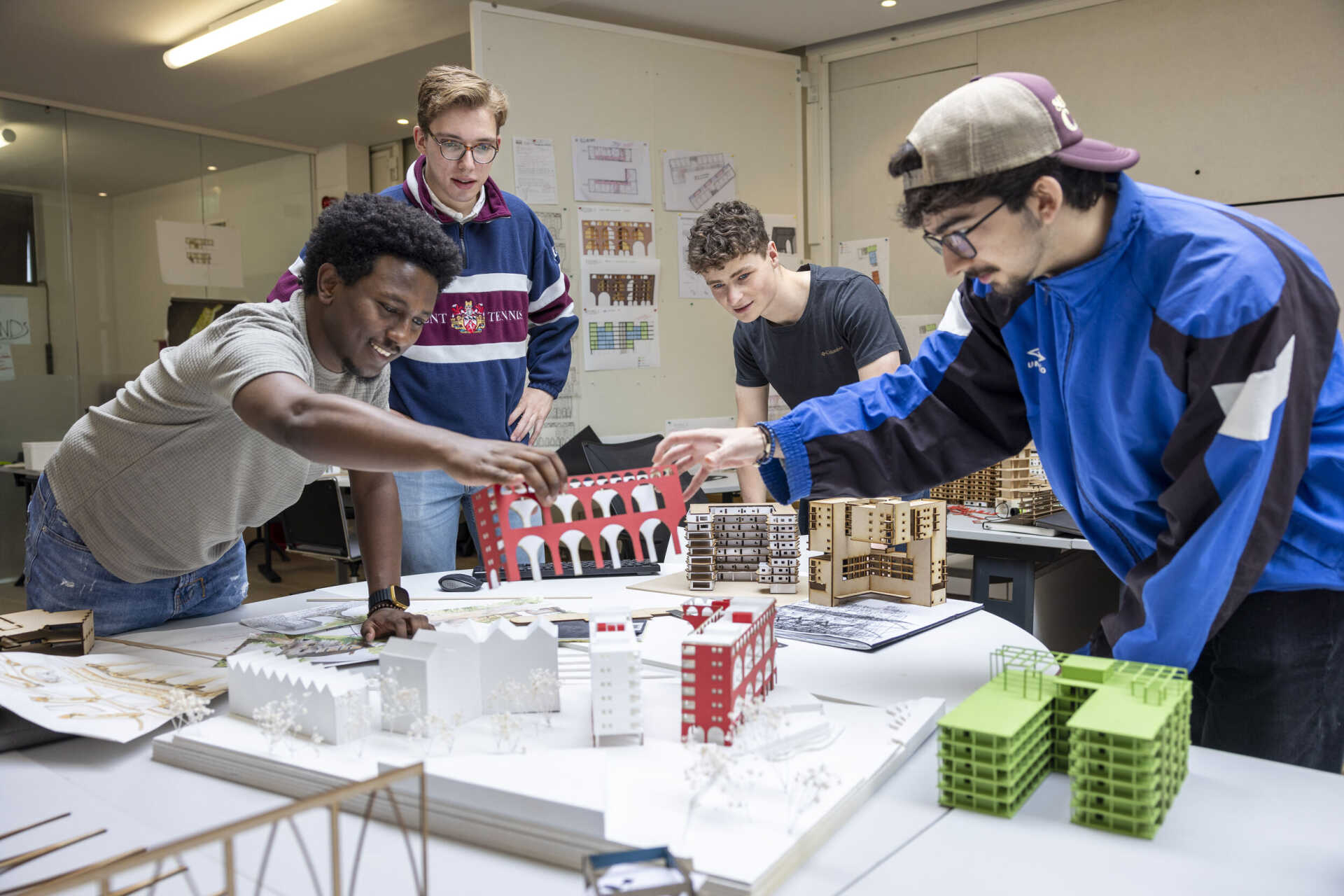What can I do with a degree in Architecture?

Architecture and design shape the built environment, influencing how people live, work, and interact with spaces. Studying this degree at the University of Kent equips you with creative, technical, and practical skills to design sustainable, functional, and innovative buildings and urban spaces. Get ideas and inspiration here before booking a one-to-one appointment with a Careers Adviser.
Careers in Architecture, Urban Planning and Resilience
Graduates from the Architecture programme develop skills in design thinking, technical drawing, digital modelling, and project management. Potential roles include:
Architect - Use technical and creative skills to design, plan and oversee buildings and spaces, balancing functionality, safety, and aesthetics. Architects work closely with clients and construction teams to bring architectural visions to life.
Architectural Designer/Architectural Technologist - Lead on the design of buildings and structures from conception to completion, balancing aesthetics, functionality, and sustainability.
Urban Designer - Plan and develop urban spaces to improve community living, considering and reducing environmental impact.
Landscape Architect - Create outdoor spaces that blend natural and built environments harmoniously including parks, housing estates, and motorway construction.
Interior Designer - Develop commercial or residential interior spaces focusing on functionality, safety, and style from concept to completion.
Sustainability Consultant - Combine an interest in the environment with business to advise on eco-friendly building practices and energy-efficient designs.
Alternative career paths
Building Surveyor - Assess the condition of buildings and advise clients on technical aspects, design, repairs and maintenance on a wide range of properties.
Project Manager (Construction) - Oversee projects, ensuring safety, timelines, budgets, and quality standards are met.
CAD Technician - Create digital models and renderings for architectural presentations using engineering, IT and mathematical knowledge to design buildings, machinery, parts and other products.
Historic Building Conservationist/Inspector - Preserve and restore heritage or architectural buildings. Projects may have community, environmental and economic benefits.
Where do University of Kent graduates work?
Kent graduates have found employment across a variety of sectors and employers, including: residential architecture, commercial architecture, urban planning, landscape architecture, cultural heritage conservation, interior design and construction management at:
- Foster + Partners
- EPR Architects
- Clague Architects
- Purcell, Mace, Hollaway, Overbury and TP Benett
Many more opportunities that utilise creativity and technical skills exist across other industries.

Find a job
The Careers and Employability Service provides information and advice on job searching to University of Kent students and recent graduates. This includes Uni Kent Careers Hub, advertising a range of graduate jobs, placement year and vacation work/internships.
Architecture recruitment platforms
Royal Institute of British Architects
Useful resources
Royal Institute of British Architects (RIBA)
ArchDaily and Dezeen for industry news
LinkedIn Learning (CAD and design software tutorials)
Tips to stand out
Portfolio creation: Develop a strong online portfolio showcasing your design projects and creative/technical skills on platforms such as Behance, Archinect or a personal website. Add this to your CV/LinkedIn profile.
Gain real-world experience: Gain experience through internships, student productions, or freelance projects, in order to develop workplace and technical skills.
Network: Use LinkedIn and Kent’s Career Mentoring scheme to build connections with alumni and professionals to gain insights into your target roles and industries. Network and collaborate at events organised by Kent School of Architecture and LinkedIn groups.
Build commercial awareness: Stay updated with trends in design and software development through newsletters, podcasts and following industry leaders and influencers. Research potential employers to understand their design philosophy and recent projects and engage with industry bodies such as RIBA and ARB.
Consider further study/courses: Develop knowledge of architectural software such as AutoCAD, Revit, SketchUp, and Adobe Creative Suite.
Competitions: Take part in student design competitions.

Further study
Some graduates pursue postgraduate studies to specialise or prepare for professional accreditation. Options include:
- Master’s in Architecture (MArch)
- Urban Planning
- Sustainable Design
- Historic Building Conservation
Online and professional certifications in BIM (Building Information Modelling) and sustainability are also highly regarded.